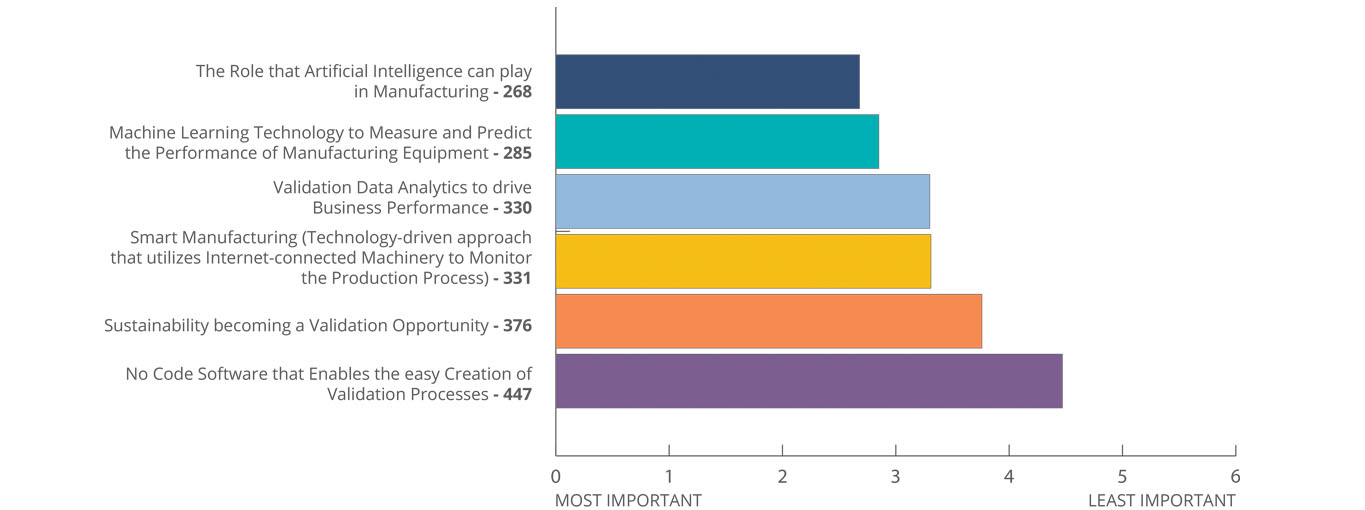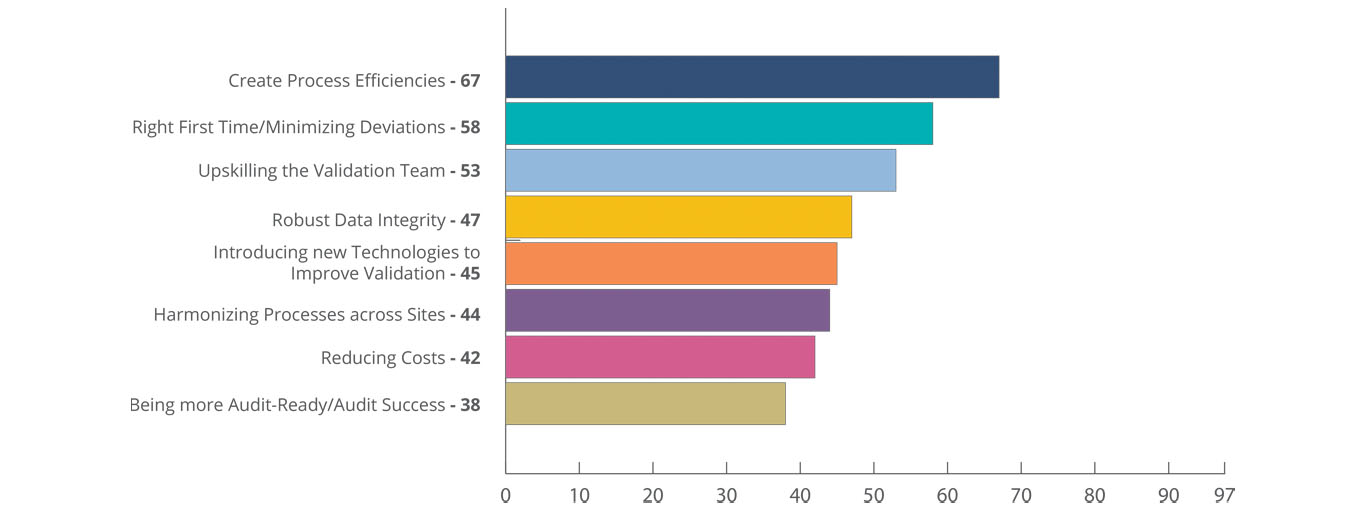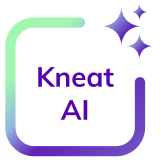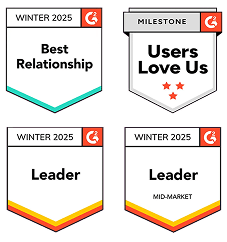The State of Validation is an annual report on practices, trends, and challenges in the validation space driven by a primary research survey of validation professionals from all over the world. The report creates an annual dataset to track the progression of the validation industry, enabling organizations and individuals to reference, benchmark, and enhance their validation programs, teams, and technologies each year.
The five key sections of the report relate to People and Organizations, Validation Programs, Goals and Growth, Industry Change and Digital Transformation, and The Future of Validation. Each section analyzes and outlines the implications of the findings for industry.
The report was authored by leading life sciences industry expert and Harvard University alumnus Jonathan Kay, supported by a qualified, independent Data Analyst and oversight from a special interest group comprising industry specialists at CAI, Deloitte, Design Group, Kneat Solutions, and VEQTOR.
For the 2022 report, validation professionals were interviewed to learn about their top priorities over the next year and the challenges they’re facing. One clear conclusion from the 2022 State of Validation report? There is a significant and consistent increase year over year in both the time and budget spent on validation activities by companies. Download your copy of the report today.
Read this blog to get key insights from the 2022 State of Validation report:
- The next validation management trends to watch out for.
- Strategic goals reported by your peers.
Kneat would like to thank all the respondents who participated in the 2022 State of Validation survey . If you are a validation professional, we encourage your participation in the 2023 State of Validation survey and report. In 2023, we aim to increase the number of sectors and total participation overall, expand subgroup analysis, and track year over year change. If you’d like to take part in next year’s annual industry study, you can register your interest today.
What’s next in validation management?
Respondents were asked to rank six technology trends in order of the most impact on the future of validation (1 having the most impact and 6 having the least impact) with the top trends being those most frequently ranked with the lowest score across the poll group.

Next generation digitization technologies
They signaled that ‘The Role That Artificial Intelligence Can Play in Manufacturing’ would have the most impact, with ‘Machine Learning Technology to Measure and Predict the Performance of Manufacturing Equipment’ ranked second.
Despite many life sciences and other regulated organizations already using ‘next generation’ digitization technologies such as digital twins, artificial intelligence, predictive maintenance, and IIOT in production, digital adoption in validation remains in flux. Although only 14% of respondents stated that they currently perform all validation activities digitally, a further 40% of those surveyed stated they plan on implementing digital validation within the next two years. It appears that the validation industry is quickly approaching a digital validation adoption tipping point.
As the industry continues to trend further away from paper-based work processes to digital validation, the applications of validation data and metadata—from simple reporting to machine learning for deviation root cause analysis—are likely to become commonplace and help validation teams extract the highest level of efficiency from validation activities.
Sustainability becomes a validation opportunity
It is interesting to note that survey respondents also held that ‘Sustainability Becoming a Validation Opportunity’ would have an impact on the future of validation. Investor demands and customer scrutiny on companies are increasing, particularly as they relate to sustainability and environmental, social, and governance (ESG) issues. Sustainability will deepen as a tenet of organizational culture—and is reaching quality assurance and validation teams previously sheltered from the issue.
At any one time, a large global pharmaceutical company will archive and store up to eight million pages of compliance documentation, locking away on average over half a million documents into physical storage for regulators to call upon during audit, and destroying over 800 trees in the process.(7)
Just one tree can supply enough oxygen for up to four people, but crucially it will absorb over 20 kilograms of carbon each year of its life, magnifying carbon sequestration over its lifespan.(8)
The carbon offset on travel created by remote validation capability is much greater again—with an average carbon offset of half a metric ton, per person, per domestic air-travel event for projects where digital validation solutions are used. This is particularly impactful in global CSV projects, capex C&Q, and FUE projects, and where global processes are in place, where staff and supplier travel are frequent or ongoing.
By digitizing the entire validation lifecycle, through the elimination of validation on paper alone, digital validation enables companies to decrease their carbon footprint, whilst achieving efficiencies that drive the bottom line.
Strategic goals for validation professionals
For this year’s report, we also surveyed validation professionals about their strategic goals for the next year. Respondents were asked to select all validation-related goals that apply, with the top three most prevalent goals selected being ‘Create Process Efficiencies’ (selected 67 times), ‘Right First Time/Minimizing Deviations’ (selected 58 times) and ‘Upskilling the Validation Team’ (selected 53 times).

Respondents were also asked to select all skills and/or attributes they thought validation professionals would need to best match the way that validation is performed.
The most prevalent skill/attribute selected was ‘Greater Technological Skills’ (selected 72 times), followed by ‘Improved Adaptability’ (selected 55 times), and ‘Improved Project Management Skills’ (selected 51 times).
Final thoughts
Navigating the evolving regulatory landscape requires an informed, efficient, and effective validation program. The aggregated results found in this year’s report provide actionable insights allowing validation professionals to use this baseline data to reference, benchmark, and enhance their validation programs, teams, and technologies each year.
2023 presents an important opportunity for validation professionals. Rising demand for validation data and the pressure to keep up with global regulatory changes and guidelines, such as the FDA’s recently published draft guidance on “Computer Software Assurance for Production and Quality System Software” mean that companies will look to invest in ways to improve processes and systems.
This year’s State of Validation report demonstrated that, although the current state of the industry is in flux, a shift to technology, digitization, and expertise should not only be expected, but is necessary for companies to stay in line with their validation requirements and to thrive and succeed in today’s competitive markets.
About the author
The State of Validation was independently authored by Jonathan Kay, a leading academic researcher and trusted advisor to life sciences and digital health companies. Jonathan earned a B.A. from Cornell and a Master in Public Policy from the Harvard Kennedy School of Government.
Jonathan has supported the successful development, launch, and commercialization of dozens of medical devices, diagnostics, vaccines, and therapeutics to address unmet needs in cancer, cardiovascular disease, infectious disease, rare disease, and more. His mission is to advance new technologies that save and improve lives and expand access, equity, and value. He does that by helping industry to understand complex landscapes through market research.
Industry report in review: webinar
Meet validation industry specialists from the report’s supporting organizations: Nathan Temple, Global Director – Commissioning & Qualification Services at CAI; Rob Beane, Partner at Design Group; Priscilla Gibbons, Partner Success Manager at Kneat; and Phil Jarvis, Director of Integrated C&Q & Kneat Services at VEQTOR, in the upcoming ‘The State of Validation—Industry Report in Review panel discussion on Tuesday, December 13, 2022, at 8 AM PT / 11 AM ET / 4 PM GMT, as they take a deep dive into the findings, insights, and questions arising from the inaugural, 2022 State of Validation study.
Attend to better understand trends in:
✓ Validation program structures
✓ Validation function and systems budgets
✓ Goals and growth, industry change
✓ The state of digital transformation today
✓ Future of industry
References
- Jonathan Kay, [https://www.linkedin.com/in/jonathan-kay-healthcare/].
- CAI, [https://cagents.com/].
- Deloitte, [https://www2.deloitte.com/].
- BW Design Group, [https://www.bwdesigngroup.com/].
- Kneat Solutions, [https://kneat.com/].
- VEQTOR, [https://veqtorsolutions.com/]
- Iron Mountain Customer Success Stories, [https://www.ironmountain.com/uk/resources/case-studies/s/sanofi].
- The Power of One Tree, [https://www.usda.gov/media/blog/2015/03/17/power-one-tree-very-air-we-breathe].
- Infographic: Environmental impact of in-person vs. virtual meetings, [https://www.impetusdigital.com/2020/10/14/infographic-environmental-impact-of-in-person-vs-virtual-meetings/].
- Computer Software Assurance for Production and Quality System Software, [https://www.fda.gov/regulatory-information/search-fda-guidance-documents/computer-software-assurance-production-and-quality-system-software].







